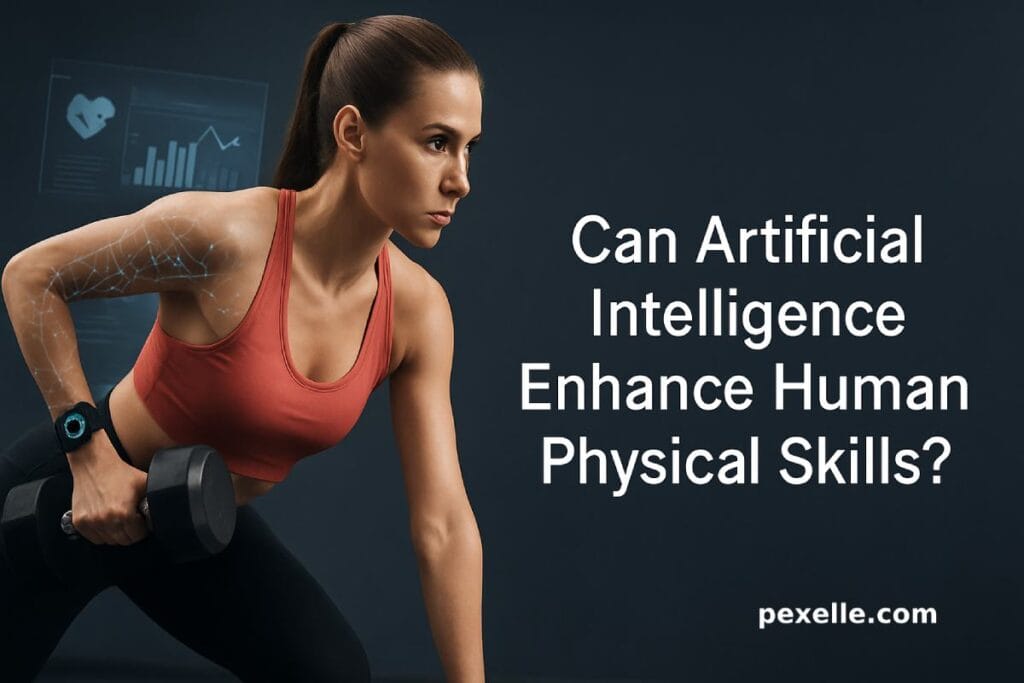Can Artificial Intelligence Enhance Human Physical Skills?

In recent years, artificial intelligence (AI) has transformed various aspects of our lives, from healthcare and transportation to education and entertainment. One of the most intriguing frontiers of AI is its potential to enhance human physical abilities — not just cognitively, but in terms of coordination, strength, motor skills, and athletic performance. This possibility invites a critical question: Can AI actually improve our physical skills, or is its impact limited to the digital realm?
AI in Physical Training and Athletic Performance
AI is already revolutionizing the sports and fitness industries by personalizing training regimens, analyzing motion patterns, and predicting injuries. Wearable devices powered by AI algorithms can track biomechanics in real-time — monitoring posture, gait, balance, and energy output. For athletes, this enables hyper-personalized feedback loops that guide better form, timing, and efficiency. Companies like WHOOP, Catapult, and even AI-driven coaches in apps like Freeletics or Tempo illustrate how AI helps individuals train smarter, not just harder.
For example, Olympic teams now use AI motion tracking to detect subtle inefficiencies in movement that human eyes might miss. Correcting these micro-errors can significantly enhance precision and reduce fatigue, ultimately boosting physical capability.
Rehabilitation, Motor Learning, and Physical Therapy
AI also plays a growing role in rehabilitation science. By integrating AI with robotics and sensors, physical therapists can monitor recovery with unparalleled accuracy. Smart exoskeletons and robotic limbs, powered by machine learning, adapt to user movements and assist in rebuilding motor functions after injuries or strokes. AI can detect when a patient’s range of motion is improving or when a new exercise may be introduced for faster progress.
This intelligent feedback not only accelerates healing but also strengthens long-term motor learning. Through repeated interactions with adaptive AI systems, patients “relearn” how to move more effectively — a clear example of AI enhancing physical skills in a clinical context.
AI in Skill Acquisition and Fine Motor Development
Beyond athletics and rehabilitation, AI can improve fine motor skills in areas like surgery, music, and dance. Surgical robots like the da Vinci system use AI to enhance precision in delicate operations. Similarly, AI-assisted piano or violin learning tools help musicians refine technique with feedback on finger pressure, tempo, and hand positioning. Dancers can even use AI motion capture systems to correct posture or synchronize timing with music, improving muscle memory and coordination.
In each case, AI acts not just as an observer, but as a mentor — providing real-time, data-driven coaching that augments traditional human instruction. This leads to faster skill acquisition and deeper physical awareness.
Challenges and Ethical Considerations
Despite its promise, the integration of AI into physical skill development isn’t without risks. Over-reliance on AI may reduce a person’s natural adaptability or ability to self-correct. Additionally, there are concerns about data privacy, especially when sensitive biometric data is collected. The commercialization of AI in sports and therapy may also widen inequality, as only elite athletes or wealthier patients can access the most advanced systems.
Moreover, AI models are only as good as the data they’re trained on. If datasets are biased or limited, recommendations may be misleading or even harmful — especially in high-risk physical activities.
Conclusion: A Symbiotic Future of AI and Human Physicality
While AI will not replace the human body’s need for practice, discipline, and intrinsic motivation, it is becoming a powerful enhancer of physical skill development. From elite athletes refining micro-movements to patients regaining motor control after trauma, AI offers tools that can elevate our physical capacities in ways never before possible.
The future likely lies in a hybrid approach — where AI amplifies human intuition, coaches physical performance, and supports recovery, but always under human oversight. In this synergy, we may unlock not only stronger bodies but smarter ways to train, heal, and move.
Source : Medium.com




